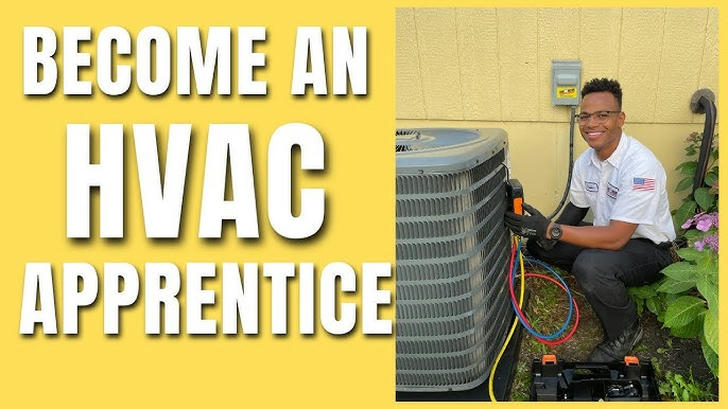🛠️ No Experience? No Problem! Your Guide to Paid HVAC Training Programs in the U.S. (2025)
Looking for a high-demand career without going into debt? If you’re good with your hands and like solving real-world problems, paid HVAC (Heating, Ventilation, and Air Conditioning) training programs might be exactly what you need.
In 2025, skilled HVAC technicians are in short supply — and companies are now offering paid training, guaranteed jobs, and full-time benefits to attract new talent.
This guide breaks down everything you need to know:
- How top HVAC paid training programs work
- What you’ll earn during and after training
- Which companies offer the best opportunities
- How to apply — even if you’ve never touched a thermostat

🌡️ Why Paid HVAC Training Matters in 2025
The U.S. is expected to add 40,100 new HVAC jobs between now and 2032, according to the Bureau of Labor Statistics. That's a growth rate of 6%, faster than the average occupation.
✅ Many HVAC roles require no college degree
✅ You can earn while you learn — no student loans needed
✅ HVAC pros earn a median salary of $57,000+, with experienced techs making $75K–$100K/year
💬 “We need HVAC techs more than ever — and we’re ready to pay people to learn,” says a training coordinator at ARS/Rescue Rooter, a leading national HVAC employer.
💼 What Is a Paid HVAC Training Program?
Unlike traditional trade schools, paid HVAC training puts you on the payroll from day one. You receive hands-on instruction, classroom lessons, and field mentorship — all while earning an income.
🔧 Program Features
• Full-time paid training ($16–$22/hour starting)
• Covers HVAC theory, diagnostics, and repair
• State certification and EPA 608 licensing included
• Guaranteed job placement upon completion
• Benefits: health, dental, PTO, 401(k)
🧰 Top HVAC employers in 2025 offering paid training:
• ARS/Rescue Rooter
• One Hour Heating & Air Conditioning
• Trane Technologies
• Service Experts Heating & Air Conditioning
📘 Program Breakdown: How It Works
🏫 Phase 1: Classroom Learning
🧰 Phase 2: Hands-On Lab Training
🚐 Phase 3: Field Ride-Alongs & Mentorship
📝 Phase 4: Certification & Job Placement
💵 Real Earnings Breakdown
| Role | Starting Pay | Median Pay | 5+ Years Experience |
|---|---|---|---|
| HVAC Trainee | $16–$22/hr | $20–$28/hr | $35–$45/hr |
| Electrician | $18/hr | $29/hr | $40/hr |
| General Laborer | $14/hr | $17/hr | $22/hr |
📈 HVAC techs are needed year-round — demand doesn’t freeze in winter or melt in summer.
🧾 Application Requirements
• ✅ High school diploma or GED
• ✅ Valid driver’s license
• ✅ Interest in hands-on/mechanical work
• ✅ Background check & drug screening
🙋♂️ Who Should Apply?
• 📦 Warehouse workers
• 👨👩👧👦 Parents looking for stability
• 🧱 Construction crew looking to specialize
• 👩🔧 Women exploring trades
🗣️ Real Story: Alex C. — From Fast Food to $28/hour HVAC Tech
“I was 25, stuck in food service. Found ARS’s paid training on Facebook. 5 months later, I had my own service truck.”
👩🔬 Women in HVAC: Breaking the Ice
• 4.5% of HVAC techs in 2025 are women (up from 1% in 2010)
• Programs now offer women-only training groups
• Supportive culture & mentorship opportunities growing
🧠 Tips for a Strong Application
• Get your documents ready early
• Take a online HVAC intro class
• Ask about growth paths — installer > tech > lead > supervisor
📚 References
• BLS – HVAC Job Outlook
• ARS Paid Training
• One Hour Heating & Air Info
🔚 Final Thoughts
You don’t need college or years of experience to start a solid HVAC career in 2025. Just curiosity, commitment, and the right training.
👉 Ready to get started? Search “paid HVAC training near me” or apply directly through ARS, Trane, or a local provider.
